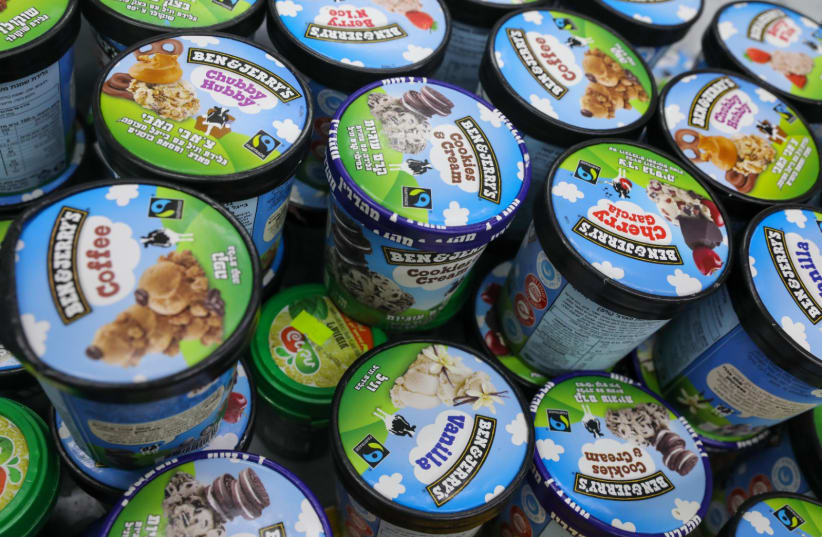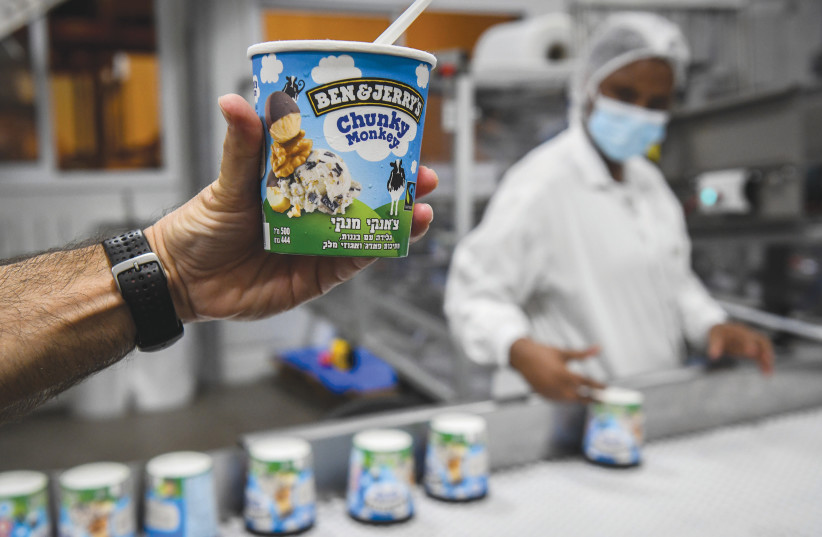Any Unilever Global plan to restrict Ben & Jerry's ice cream sales solely within the pre-1967 law would run afoul of the county's anti-boycott law, declared Avi Zinger the CEO of the Israeli franchise of the famous Vermont based global ice cream company declared on Sunday.
“There is no legal possibility to continue selling in Israel without selling in Judea and Samaria,” Zinger stated.
He spoke in response to a declaration last Thursday by Alan Jope the CEO of Ben & Jerry’s parent company Unilever.
Jope told reporters that the board of Ben & Jerry’s aims to work out a “new arrangement” for sales within sovereign Israel before the end of the year.
“Our absolute focus right now is to figure out what the new arrangement will be for Ben & Jerry’s,” Jope said on a conference call with journalists after the company announced its earnings.
Jope's comments were the most specific he has given about the decision made last July by Ben & Jerry's independent board to end its contract with its Israeli franchise by the end of 2022.
The decision came after Zinger – whose ice cream factory is located in southern Israel – refused to halt sales of the ice cream to settlements. Israeli products – including others connected to Unilever – such as the competitor ice cream brand Strauss, are all sold on both sides of the pre-1967 lines.
Opponents of the Ben & Jerry’s decision have urged that the boycott is anti-Israel because it will involve halting all sales in Israel, while on the other side of the question – Unilever and Ben & Jerry’s – have insisted that a solution will be found to maintain the ice cream brand in Israel.
Zinger has pushed for Israel to apply the anti-boycott law to Unilever.
Israeli anti-boycott legislation from 2011 is designed to prevent action against Judea and Samaria taken by companies like Unilever.
But the matter must still go before the Knesset’s Law and Constitution Committee, a step that could happen in the coming weeks.
“Any new arrangement that does not include a sale in all areas of Israel means a violation of Israeli law,” Zinger said.
Ben & Jerry’s accounts for about 3% of the world’s ice cream market. The brand’s sales grew 9% last year, Unilever said, outpacing overall underlying sales growth of 4.5%. The company did not give further details on sales.
“I definitely would not make a connection between those [Ben & Jerry’s] statements and its sales growth,” Jope said on the call.
“The growth that we’re seeing on Ben & Jerry’s is driven much more by their innovation program,” Jope added.
Reuters contributed to this report.

